With 50 participants from the regional horticultural sector, the Horticultural Business Club South Netherlands recently made a successful excursion trip to the Moroccan city of Agadir and the surrounding horticultural area of Souss-Massa from 13 to 16 October 2024. In putting together the program, the business club was able to make grateful use of the knowledge and network of Yassin Lahiani, Export Manager North Africa at Koppert. Jos Caubo made the following report.
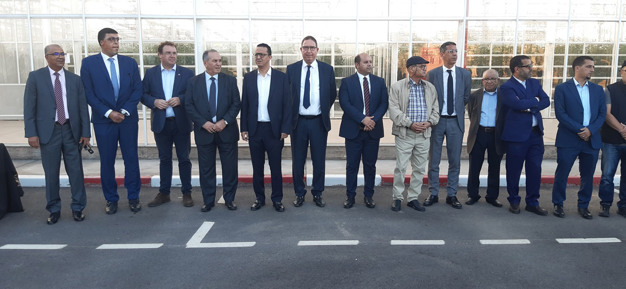
The visit began on the first morning with a special reception at the Centre d'Excellence Horticole d'Agadir. In this state-of-the-art horticultural greenhouse, Dutch horticultural technology is demonstrated and joint research is carried out into its applicability under Moroccan conditions. The one-hectare greenhouse is packed with state-of-the-art Dutch hardware and software. The project cost €3 million, of which €2 million was financed by Morocco and €1 million by the Dutch government.
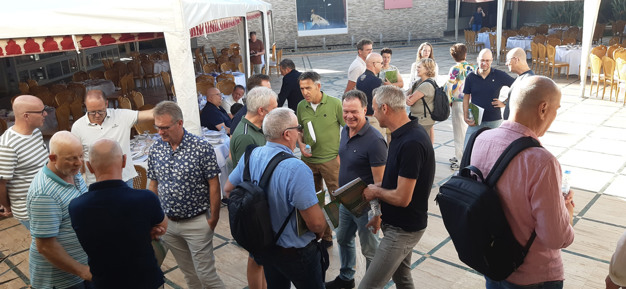
Farid Lekjaa, director of the center and one of the strategists behind the development of the ambitious agro-development program Green Morocco 2030, had pulled out all the stops to show the Dutch delegation that the development of the Moroccan horticultural sector is going fast. Numerous directors from growers' associations, marketing organizations, and regional authorities, among others, attended the program, as well as the governor of the Souss-Massa region. Dirk Jan Nieuwenhuis, the new Dutch ambassador to Morocco since August, had also been invited as a guest by Farid Lekjaa and had come to Agadir from his base in Rabat. In his speech, he addressed, among other things, the importance of good cooperation between the Dutch and Moroccan horticultural sectors. His presence was greatly appreciated by the members of the Horticultural Business Club.
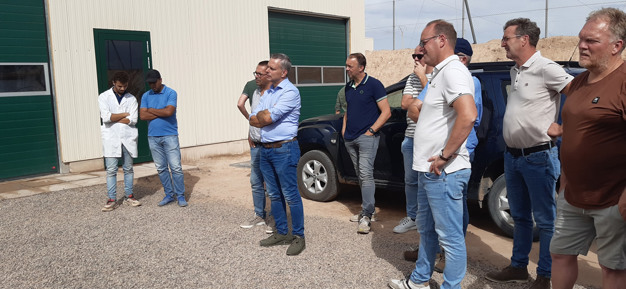
Tea
After the morning program and the subsequent traditional Moroccan lunch, the Centre set sail for Belfaa, where the Dutch company AgroCare has a tomato-growing business. AgroCare is one of the largest European tomato producers, and in addition to Morocco also has a cultivation company in Tunisia, among other countries. In his transparent presentation, Stijn Weijns, the amiable Dutch director at Belfaa, talked about his experiences and the ins and outs of building a new greenhouse in Morocco. For example, he underlined the importance of adapting to the prevailing mores when consulting with the local government. 'Drink tea a lot and often,' was his motto.
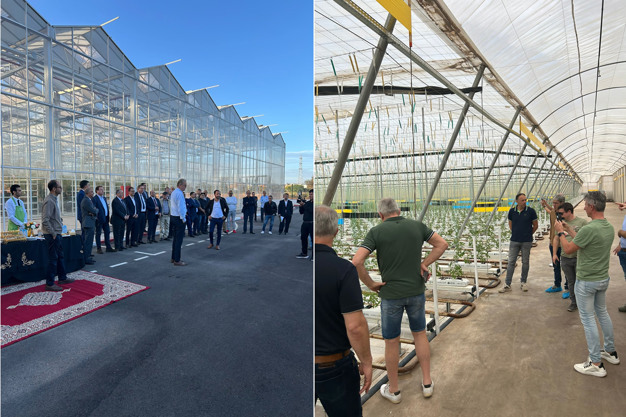
The next day, the business club boarded the bus early to be the first to visit blueberry grower Agrovision in Biougra. This soft fruit giant has growing companies all over the world, including in Chile, Peru, and Mexico. The farm in Biougra is 15 hectares and was set up only two years ago. The berry plants there are in long rows in pots under modern tunnels.
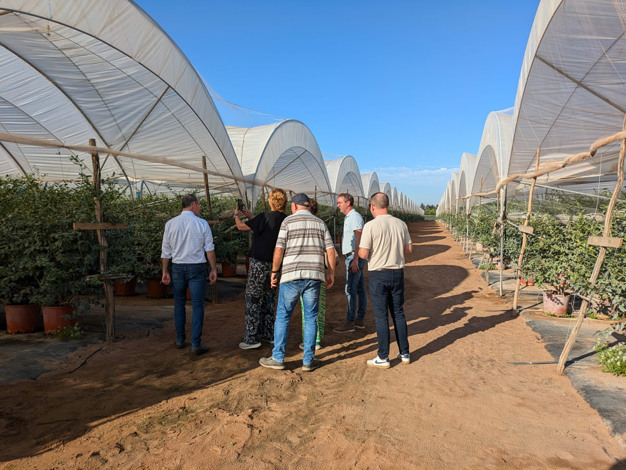
In the small town of Ait Amira, not far from Biougra, the company Matysha, a major Moroccan player in raspberries, tomatoes, and mandarins, among others, was visited later in the morning. Managing director Aziz Rahmani and two members of management took all the time they needed to welcome and show the business club around.
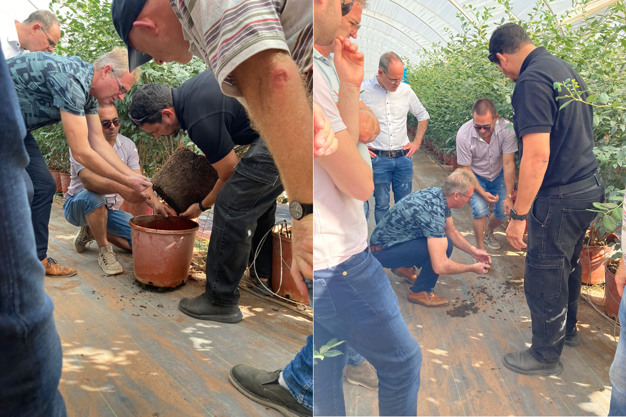
Finally, in mid-afternoon, the program included a visit to Kamps Beans in Sidi Bibi, a company with Limburg roots owned by brothers Sjaak and Marius Kamps. The company grows green beans and string beans, among other crops, in Morocco and Senegal. Director Rachid Rida gave an extremely interesting tour and presentation, in which he also elaborated on Kamps' strategic partnership with the Dutch company Scherpenhuizen.
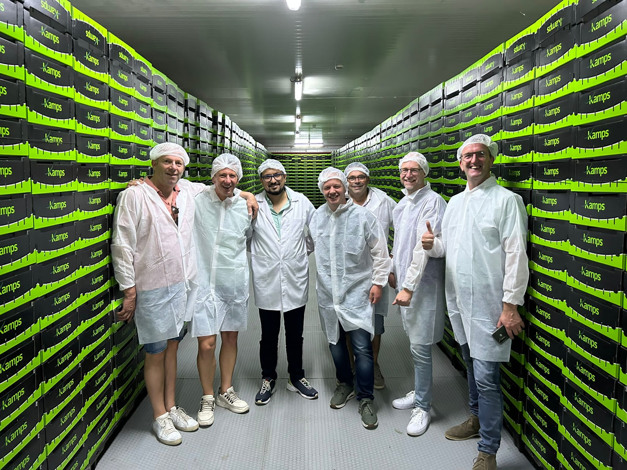
The day, filled with fascinating company visits, ended in the evening with a nice dinner in Pure Passion restaurant owned by Dutch businessman Karel van Oers, in Agadir's marina.
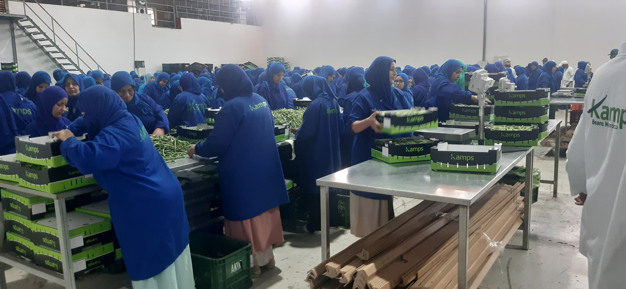
Before heading to the airport for the flight back the next day after lunch, the group paid a short visit to Agadir's renowned Souk.
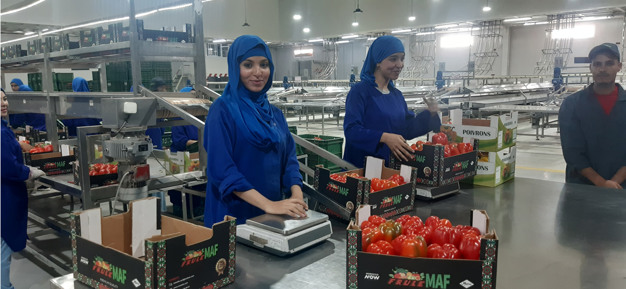
The conclusion of this extremely interesting and multifaceted visit: Moroccan horticulture has already worked very hard in recent years to catch up with countries such as Spain and the Netherlands. In the medium term, the country has developed ambitious plans for a sustainable and competitive horticulture sector, and it is clear that the Moroccan government is working hard to realize these plans with considerable strides.
The regional TV station in Souss-Massa made the report below
Source: Horticulture Business Club
